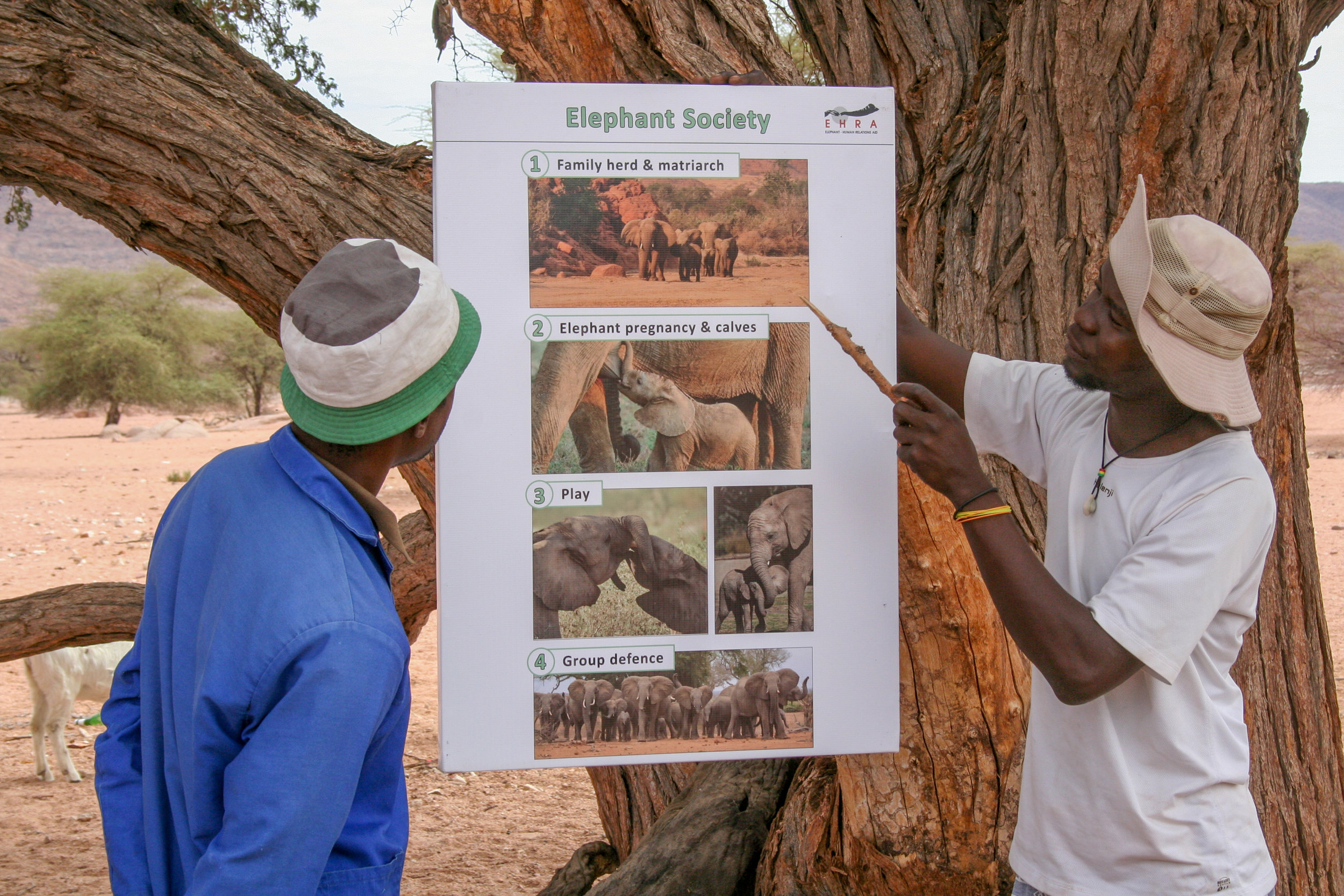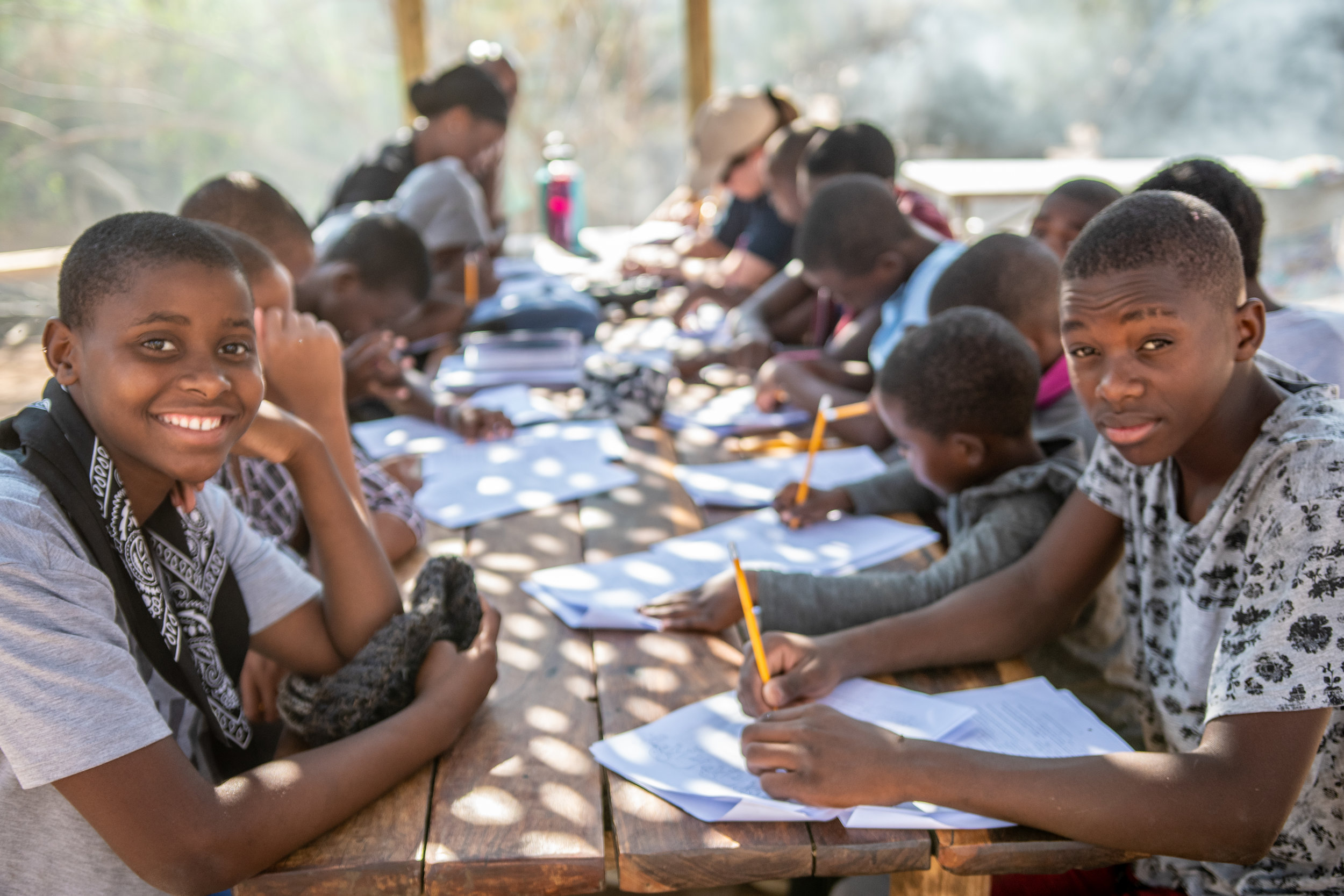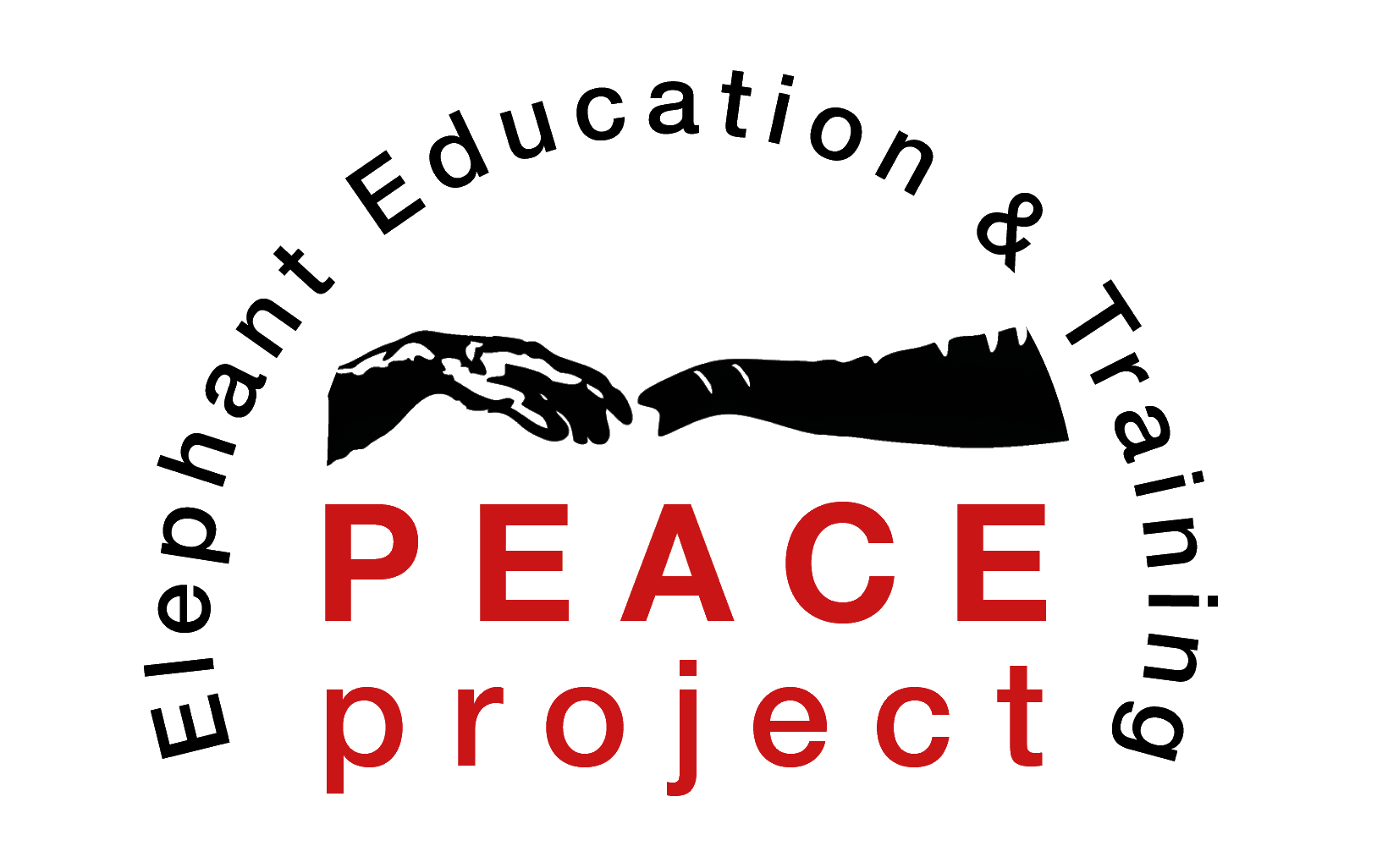EHRA initiated the PEACE Project (People and Elephants Amicably Co-Existing), its education programme, in 2009 in response to the increasing conflicts and intolerance towards desert elephants in Namibia, Africa.
The PEACE Project is an elephant-focused conservation education programme for the communities living in the southern Kunene and northern Erongo regions, where many of Namibia’s desert elephants roam. The land is state-owned and primarily used by farmers for subsistence livestock farming, where conflicts between people and their elephant neighbours happen frequently.
Due to increased demand from community members for information on elephants and how to live with them, EHRA Directors Hendrick Munembome and Dr Betsy Fox created a very engaging syllabus which covers multiple topics around desert elephant conservation and peaceful co-existence. EHRA’s PEACE Project teaches residents essential facts about how elephants live and behave, how to interpret elephant behaviour, and how to protect themselves and their livelihoods during encounters with elephants. Through educational PEACE workshops, people of all age groups and social backgrounds learn and experience the true nature of elephants, which decreases their fears and changes unfounded beliefs and attitudes.
As a result of the successful implementation of this programme, EHRA’s PEACE Project team extended the curriculum to host a variety of different seminars, depending on the outcome required. From school seminars and community workshops, we also conduct elephant guard training, game guard training and tour guide training – all with a specific focus on the conservation of Namibia’s desert elephants.
Download our educational resources here.
VISION & MISSION
EHRA’s mission for the PEACE Project is to reduce the intolerance towards elephants by teaching communities facts about elephant behaviour as well as practical tactics to keep themselves safe during encounters. Through improved knowledge, we are confident that conflict situations will decrease and communities will feel empowered to live together with Namibia’s desert elephants peacefully.

REASONS FOR HUMAN-ELEPHANT CONFLICT IN NAMIBIA
Conflict between elephants and humans exists due to increased competition for land and water resources, and a lack of knowledge on how to live together peacefully. In Namibia’s Kunene Region, the main conflict is access to water. During the Namibian War of Independence, elephants fled further north for safety, returning to the Ugab River in the mid-1990s. New residents that moved to the region had never encountered elephants before and thus did not know how to live with them.
Poor knowledge
Insufficient knowledge about desert elephants has caused people to react negatively towards elephants passing by. This could result in conflict situations which can injure humans, elephants or livestock, or worse; it could be fatal. To stay safe, people need to understand elephant behaviour.
No tourism income
Desert-adapted elephants are one of the country‘s biggest tourist attraction. Lodges and campsites draw thousands of tourists into the area. Unfortunately, most farmers that live with elephants only experience the downside of having elephants as neighbours, with no financial benefit.
Lack of water
Limited water resources in arid areas such as the Kunene and Erongo regions in Namibia, can cause competition for water that usually escalates quickly. Desert elephants may often visit farms or schools in search of water and pose a potential threat to residents.

FUNDING FOR THE PEACE PROJECT
The PEACE Project receives no funding from the government or EHRA’s operations budget; it depends solely on donations, grants and other funding to provide this training to communities free of charge. These donations help pay for the educational materials, transportation and meals.
The entire program aims to produce more informed and safe residents and tourists who can appreciate elephants as a significant asset in their lives. This hopefully will lead to more relaxed, less aggressive elephants as well.
If you’d like to make a donation, click here. Your support is greatly appreciated and will go directly to our PEACE Project, to benefit the desert elephants and people living alongside them in Namibia.
WHO WE’RE WORKING WITH
SCHOOLS
Often, elephants visit schools situated in elephant areas. When elephants walk through the school, they often break water installations and raid the vegetable garden, which puts the lives of the school learners at risk. The PEACE Project teaches the youth important safety tactics and knowledge on elephants.
COMMUNITY
We aim to equip community members with the necessary knowledge and skills to keep themselves and their homesteads safe when elephants come onto farms in search of water or food. Community members learn practical conflict mitigation methods, safety tips and how to understand elephant behaviour.
GAME GUARDS & MET
We provide elephant ID and conflict management training to Game Guards (Community Rangers) and MET Field Officers (Ministry of Environment and Tourism), to expand their knowledge on the local herds and improve conflict management competencies.
TOUR GUIDES
On average, we offer two elephant training courses for tour guides per year. The course concentrates on advanced knowledge on elephants plus a respectful interaction with them, which can impact the relationship between the elephants and the local people living with them.














